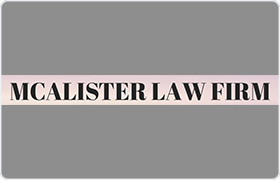Lucedale Criminal Lawyer, Mississippi
Sponsored Law Firm
-
 x
x

Click For More Info:
-
McAlister Law Firm, LLC
419 Security Square Gulfport, MS 39507» view mapCriminal Defense Law Your Gulf Coast Attorney
An Attorney with Nineteen years of court room experience. Licensed in the States of Mississippi and Alabama.
228-265-5190
W. Fred Hornsby
✓ VERIFIEDCriminal, Divorce & Family Law, Immigration, Estate, Accident & Injury
W. F. "Dub" Hornsby, III, is a lifetime resident of Biloxi. A graduate of Mercy Cross High School, Mississippi State University and the University of ... (more)
Carolyn Ann McAlister
✓ VERIFIEDDivorce & Family Law, Criminal, Estate
Carolyn McAlister is a practicing attorney in the state of Mississippi. She received her J.D. from University of Mississippi. She has been practicing... (more)
Rob Curtis
✓ VERIFIEDCriminal, Divorce & Family Law, Accident & Injury, Estate, Bankruptcy & Debt
Rob Curtis is a practicing lawyer serving Gulfport, MS and the surrounding area.
W. Edward Hatten
Alcoholic Beverages, Dispute Resolution, Arbitration, Criminal
Status: In Good Standing
FREE CONSULTATION
CONTACTSeth M. Hunter
Admiralty & Maritime, Bad Faith, Bad Faith Insurance, Criminal
Status: In Good Standing
FREE CONSULTATION
CONTACTTanya Louise Hasbrouck
Social Security, Family Law, Criminal, Accident & Injury
Status: In Good Standing
Tanya Louise Hasbrouck
Social Security, Family Law, Criminal, Accident & Injury
Status: In Good Standing
 Carolyn McAlister Gulfport, MS
Carolyn McAlister Gulfport, MS



